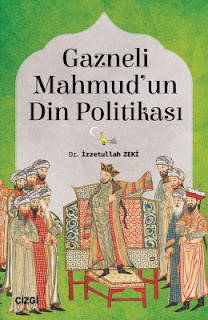MAHMUD GHAZNAVI'S RELIGIOUS POLICY
DOÇ.DR. IZZETULLAH ZEKI
Ghaznavid Mahmud, who expanded the borders from Transoxiana to the interior of India with his conquest movements by establishing a great Turkish State centered in Ghazni in the eleventh century, and who tried to dominate the spirit of Ehl-i Sunnah unity during his 33-year reign, this century with his religious, political, military and scientific activities. He was the flag bearer of the Islamic world. In addition to the mosques and madrasahs he built, the clergy and the shrine he raised in the palace, he destroyed the idols and established a throne in the hearts of Muslims with his struggle against non-Sunnah sects. Ghaznavid Mahmud received a good religious, political and military education, especially his father Sebük Tegin, Ghazni scholars and his men took an active role, guided the religious policy and enabled him to grow up in line with the Ahl al-Sunnah. The viziers, sâhib-i divans, emirs, governors, clerks and poets, who formed his palace organization, and the professors, jurists and sufis who represented the scientific community played a primary role in shaping his domestic and foreign policy. They ensured the realization of the conquest movements of India, the Abbasid Caliphate and their relations with the states in the region to be carried out effectively on the unity of Islam. Gazneli Mahmud prioritized peace and negotiation in his domestic and foreign politics as opposed to conflict and war, as a result of his religious policy. Within this framework, it struggled against extreme sects and India continued its conquest movements without stopping. He established good relations with the Abbasid Caliphate, developed political and familial relations with the Muslim Karakhanid State, welcomed the coreligionists and fellow Seljuks who will be the founders of a great state in the future.



Yorumlar
Yorum Gönder